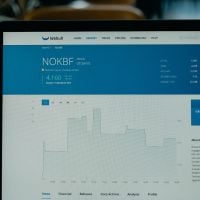Deadline: 12 March 2020
The European Union (EU) is currently accepting proposals from eligible organizations for a program entitled “Civil Society Organizations as actors of Governance and Development in Paraguay”.
Program Objectives and Priorities
The overall objective of this call for proposals is to allow Civil Society Organizations (CSOs) to participate as actors in governance and development at the country level. To this end, EU support is offered to local CSO initiatives aimed at implementing priorities reflected in the new European Consensus on Development that in turn allow the implementation of the Sustainable Development Goals (SDGs).
The specific objectives of the call, which reflect the priorities of the new Consensus, are related to the fight against climate change; the promotion of gender equality; and youth participation.
Thus, the second EU Gender Action Plan aims to achieve solid progress in this area in third countries, which means that 85% of projects that receive European funding must include a gender component or approach. Likewise, the EU’s commitment to respond to investment challenges and needs related to climate change requires devoting at least 20% of the EU budget to mitigation and adaptation actions to climate change. The support is also expected to help CSOs play their part by contributing to the objectives of the Paris Agreement and the implementation of the Sendai Framework for Disaster Risk Reduction. This program is also relevant for the 2030 Agenda. Its focus on participation, partnership and multi-stakeholder dialogues reflects the core values of the 2030 Agenda.
The specific objectives of this call for proposals are:
- Specific objective 1: Increase the participation of CSOs in the fight against climate change and the mitigation of its adverse effects.
- Specific objective 2: Strengthen the role, capacities and rights of women and girls as agents of change.
- Specific objective 3: Increase the voice of young people in society, including that of young people with fewer opportunities.
The priorities of this call for proposals are: climate change; gender equality; and youth. The proposed actions may refer to one or more of these priorities, but in any case it should be indicated which is the main priority of the action.
Size of Grants
The subsidies requested within this Call for Proposals will be comprised between the following minimum and maximum amounts:
- Minimum amount: EUR 400,000
- Maximum amount: EUR 800,000
Location
The actions will be executed in Paraguay.
Duration
The initial planned duration of an action may not be less than 36 months or longer than 48 months.
Eligibility Criteria
- Principal applicant: In order to qualify for a grant, the principal applicant must:
- be a legal entity
- not be for profit
- be a Civil Society Organization (CSO)
- be established in Paraguay or in a Member State of the European Union or in a Member State of the European Economic Area (Iceland, Liechtenstein and Norway) or in a beneficiary country of IPA II (Albania, Bosnia and Herzegovina, Kosovo, Republic of North Macedonia, Montenegro, Serbia and Turkey ) or in a developing country or territory (included in the list of ODA beneficiaries of the OECD DAC) that are not members of the G-20 or in an overseas country or territories (OCT) covered by Decision 2013/755 / EU Council, of November 25, 2013, concerning the association of overseas countries and territories with the European Union;
- For British applicants: Please note that the eligibility criteria must be met throughout the duration of the grant. Unless the specific eligibility rules for each sector provide otherwise, if the United Kingdom withdraws from the EU during the grant period without having reached an agreement with the Union to ensure, in particular, that British applicants remain eligible, will stop receiving EU funding (as long as it continues, if possible participate), or applicants will be asked to leave the project under the article [insert the reference to the article that allows the termination of the grant agreement (change of legal status of the beneficiary)] of the grant agreement ». This obligation does not apply to international organizations (which may present themselves to the call as associates) and
- be directly responsible, with their co-applicants and other affiliated entities, for the preparation and management of the action and not be limited simply to act as an intermediary;
- Co-applicants
- The main applicants established in Paraguay must have at least one (1) co-applicant.
- Main applicants not established in Paraguay must have at least one (1) co-applicant established in Paraguay.
- Proposals that include at least one co-petitioner who is not based in Paraguay will be positively valued.
- The co-applicants will participate in the design and execution of the action, and the costs incurred will be eligible in the same manner as those incurred by the principal applicant.
- Co-applicants must meet the eligibility criteria applicable to the principal applicant himself.
- Affiliated entities
- The principal applicant and its co-applicant (s) may act with affiliated entities.
- Only the following entities may be considered entities affiliated with the main applicant or the co-applicant (s):
- Only entities that have a structural link with the applicants (i.e. the main applicant or a co-applicant), especially if the link is legal or of capital.
- This structural link mainly covers two aspects:
- The control, as defined in Directive 2013/34 / EU on annual financial statements, consolidated financial statements and other related reports of certain types of companies:
- Thus, entities affiliated with an applicant can be:
- Entities directly or indirectly controlled by the applicant (subsidiaries or first level subsidiaries). They can also be entities controlled by an entity controlled in turn by the applicant (second level subsidiaries), and the same applies to the following levels of control.
- Entities that directly or indirectly control the applicants (parent companies). They may also be entities that control an entity that in turn controls the applicant.
- Entities under the same direct or indirect control as the applicant (associated companies).
- The accession, that is, the applicant is legally defined as, for example, network, federation or association in which the proposed affiliated entities also participate, or participates in the same entity (for example, network, federation or association, … ) than the proposed affiliated entities.
- Thus, entities affiliated with an applicant can be:
- The control, as defined in Directive 2013/34 / EU on annual financial statements, consolidated financial statements and other related reports of certain types of companies:
For more information, visit https://bit.ly/2sxtbCo and download the guidelines.









































